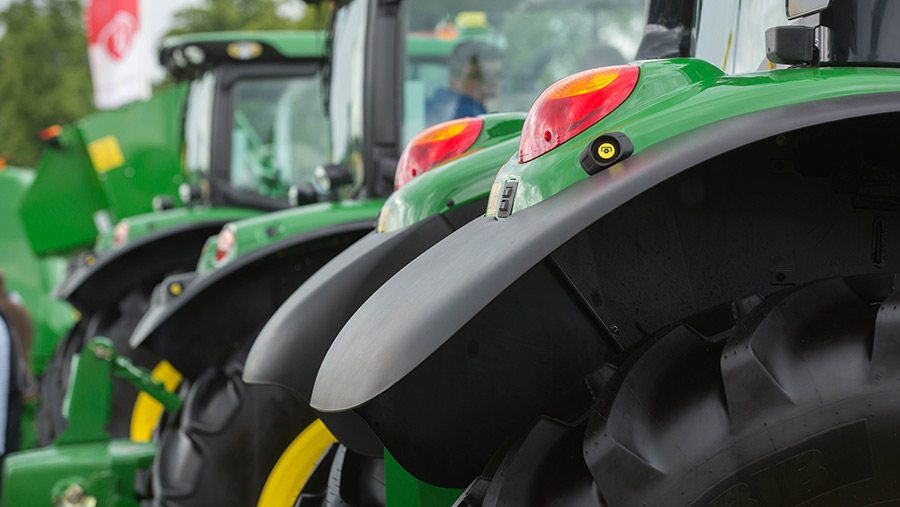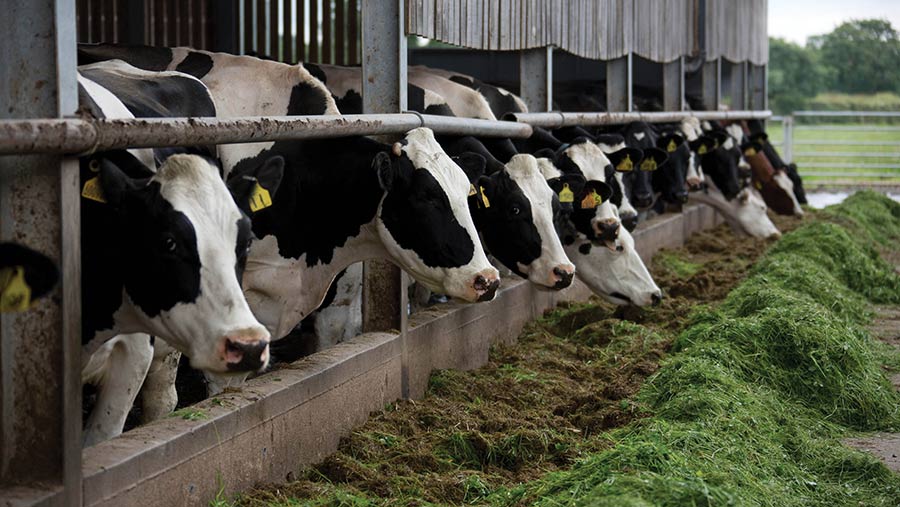5 new-year farm tax and finance tips
 © Andrew Gardner/Adobe Stock
© Andrew Gardner/Adobe Stock January is the ideal time to put financial, business and family plans in order. Farmers Weekly rounds up some top tips from the experts.
Suzie Horne rounds up some top tips from the experts
See also: 10 legal, financial and business facts for farms
1. Beware tax charge risk when selling machinery
Carly Drummond, senior tax manager, MHA
Machinery sales may lead to an unexpected income tax charge known as a balancing charge.
Selling excess plant or machinery is an efficient way to run your business. You don’t want to be carrying assets which aren’t being used and are taking up space and depreciating in value over time.
However, when you are selling assets without making replacement purchases, there could be adverse tax consequences – which would mean the sale proceeds being taxed as additional profits arising in the period.
With annual investment allowance limits being quite generous for many years, it is likely that full relief was received for the cost of the asset when it was purchased.
This would have reduced the taxable profit at this point.
Where all relief was realised upfront, all proceeds must be deemed profits on sale.
With no replacement purchase to offset this, you could see your taxable profit in the year of sale boosted along with your income tax bill.
This is also true in companies and needs to be considered alongside the new full expensing programme.
Timing is key when looking to buy or sell plant and machinery – talk to your accountant.

© Tim Scrivener
2. Reduce January tax payment on account
Mark Chatterton, head of agriculture, Duncan & Toplis
All self-employed farmers should consider reducing their 2023-24 tax payment on account, which is due for payment on 31 January.
HMRC assesses payments on account for the current year based on the previous year’s profits.
Farming profits for 2022-23 were excellent for many arable and dairy businesses due to higher commodity prices, but these are not being repeated due to the weather, falling prices and rising costs.
All sectors are affected, though mainly dairy and arable, with harvest 2023 results a lot lower than in 2022.
It’s also important for business managers to ask their accountant for their tax computation, so they can understand how the tax bill is arrived at.

© Tim Scrivener
3. How partnership agreements interact with wills
Mike Nicholls, head of will’s trust and probate, Burnetts Solicitors
Although it is widely understood that a last will and testament states who inherits your assets on your death, this is not always the case.
Your will only becomes a binding enforceable document once you die. Up to that point, your will is considered ambulatory (that is, it can be revoked or changed).
In contrast, provisions dealing with the death of a partner in a partnership agreement are valid from the point the agreement is signed.
For this reason, the terms of a partnership agreement are enforceable both on the living partners and on the executors (or other personal representatives) of a deceased partner.
So the provisions in a partnership agreement can often override provisions in a will relating to the disposition of an interest in a partnership.
Partners in a business are, therefore, strongly advised to ensure that they have considered the provisions of any partnership agreement carefully and should not rely solely on the terms of their will.
Good ongoing management and succession planning revolves around ensuring that all necessary documents are accurately drafted, kept up to date and harmonise with one another.
4. Financial review and planning
Greg Ricketts, director, GSC Grays
Farmers often do not fully understand their tax accounts and find they are then faced with a significant tax bill, without really knowing the reasons why.
Don’t be afraid to ask your accountant to explain the detail, particularly in these volatile times, when there are big swings in financial performance in certain sectors.
The annual tax accounts (which are historic and often some months out of date) are also quite different from a good farm budget that allows you to plan forward, understand future expected business performance, aid the management of cashflow and borrowings, and identify new income earning potential.
With the rise in interest rates and the cost of funds for loans increasing by 50% or more in the past two years, preparing a farm budget could provide the most important management tool to challenge your business going forward.
Farms that write a formal, long-term business plan are more profitable than the others. Ask yourself, do you really know where your business is going for 2024 and beyond?
5. Tax-free gift reminder
Kate Hardy, farms and estates director, Albert Goodman
Individuals have a £3,000 annual gift allowance which is exempt from inheritance tax (IHT). Any unused annual exemption can be carried forward for one tax year only.
However, there is no limit on the number of small gifts that can be made free of IHT of up to £250 a person, provided these are made to different people.
Other tax-free gifts which do not count towards the £3,000 annual limit include wedding or civil ceremony gifts – these must be made before the wedding and on the basis that the wedding goes ahead.
The maximum amounts allowed are £5,000 if given to a child, £2,500 if given to a grandchild or great-grandchild and £1,000 where the gift is to another relative or friend.
Gifts between spouses or civil partners are free of both IHT (presuming both are UK domiciled) and capital gains tax (CGT), as are gifts to registered UK charities and political parties.
Gifts that constitute “normal expenditure out of income” are also IHT exempt, normal being regular or habitual – that is, a gift that happens year after year.
Such gifts might include payment of grandchildren’s school fees, for example.
As long as the person making the gift is left with sufficient income to maintain their normal standard of living and the gift is made from income rather than reducing their capital investments, then IHT relief should be available.
Any non-cash gift is a chargeable disposal for CGT purposes, unless any other exemption or relief can be claimed.
Reliefs such as gift relief may be available if the gift qualifies as a business asset or is occupied for the purpose of agriculture, but it is important to make sure the CGT position is considered before making the gift.
If the gift doesn’t qualify for the CGT gift relief above, an alternative could be to make the gift via a trust, allowing CGT gift relief to be available.
However, the IHT implications also need to be considered.
Annual CGT exempt amount drops to £3,000 from April 2024
Individuals have an annual capital gains tax exempt amount, which in the current tax year (6 April 2023 to 5 April 2024) is £6,000.
This will fall to £3,000 from 6 April 2024. Prior to the current tax year, the exempt amount had been £12,300 for several years.
